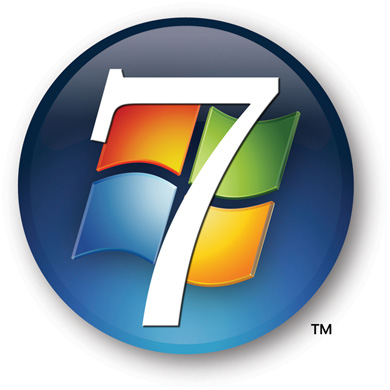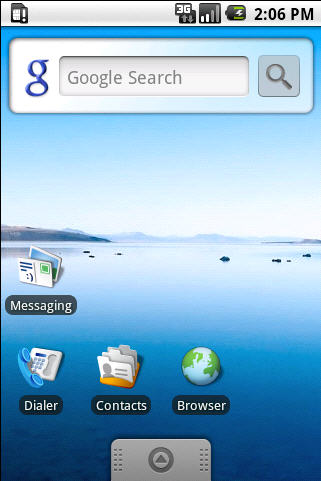« September 2008 | Main | October 2009 »
Flash Quiz on the HTC Hero
I wanted to show you this video of a Question Writer Flash Quiz running on the HTC Hero smartphone. The Hero runs Google's Android operating system and also includes the Flash plugin.
This quiz is running through the Hero's browser in the video, but I suspect it won't be long before you'll be able to convert a piece of Flash into an Android App. It's exciting because mobile apps are going to be a big growth area in the next 2-3 years, and a good Flash player on Android is going to allow Flash developers to compete. (Some estimates of Flash developers run into the millions)
Also even non-technical users will be able to turn their Flash content into Apps - For example, I'm hoping to have a 'Publish as an Android App' in the Question Writer publish menu, so that users can sell the content they create in the Android Market without having to get bogged down with all the technical details that usually go with creating a mobile app.
Some interesting technical details for you Flash geeks -
The plugin identifies itself as AFL 9,1,122,0 - I'm guessing this stands for 'Android Flash Lite'. However, this is the most powerful Flash player I've ever seen on a mobile device - I've seen Flash Lite 3 running on Nokia phones, and this is in a totally different league. This player seems to have the full memory and processor of the phone available to it.
The screen resolution from the quiz is returned as 314x480 - I'm not sure if that's accurate as it seems to take up the whole screen without any borders on the side.
The directional control on the Hero doesn't affect the focus - I hope it will when Flash 10 is released for Android in October, I know a lot of Flash games rely on this kind of directional control.
If you'd like to get started making mobile quizzes in Question Writer, you can download the mobile theme here, which is a variation on the Information Technology template at a 320x480 size. You'll also need the Nokia pixel font or another pixel font for best results.
Posted by Alexander on August 25, 2009 | Flash Quiz on the HTC Hero | Comments (2) | TrackBack
Windows 7 mini Boom for Tech and IT

"Wait for Windows 7!" is what I've been telling anyone considering a computer purchase in the past few months. The beta of Windows 7 was already better than Vista months ago. Even the promise of a free upgrade with a purchase today doesn't make it a good idea - nobody wants to install a fresh operating system in 2 months time. Better just to wait.
And there are other two types of users/businesses waiting too - those frustrated with Vista, and those on the now 8-year-old XP. There's a lot of pent up demand. You'd expect to see a dearth of purchases now, and a flood on the October 22nd release date.
This Dearth/Flood affects the whole tech and IT industry - there are a lot of complimentary products and services for a new operating system. Computer hardware is the big one, and this itself has a host of complimentary products. A user buying a new computer/os combo might buy a few additional peripherals with it and a few new software packages. A business migrating to a new OS may require help from IT services firms to keep everything running smoothly. Virtually every hardware, software and IT services outfit with exposure to Windows should see more business in the months following the Windows 7 release.
Posted by Alexander on August 20, 2009 | Windows 7 mini Boom for Tech and IT | Comments (0) | TrackBack
On2 No Shop Clause
I was Interested to read that the On2 acquisition deal included a 'No Shop' clause to preclude On2 from soliciting other offers or starting a bidding war. I wonder who might have been interested in putting in a better offer having heard the proposed Google $106 million takeover.
Maybe one of their big customers, already using their technology Adobe, Skype, Nokia or Sony? Or maybe Apple or Microsoft. The value is not just in the technology, but the ability to shape the video standards used in the future by either adding or removing restrictions on the use of the technology and patents.
I've seen a number of suggestions as to how Google intend to proceed - many suggesting that Google will free some or all of the codecs and use it to reduce bandwidth costs for YouTube. Another interesting idea is that Google will use the encoders to help users upload their vidoes. It's nice for YouTube to have the highest quality upload, but processing and storage must be expensie. Most broadband users have much smaller upload connections than download ones - better compression would allow for faster upload times, and higher resolution for live streaming from say an Android mobile device with limited bandwidth.
Posted by Alexander on August 17, 2009 | On2 No Shop Clause | Comments (2) | TrackBack
Google's On2 Move Will Pressure Adobe To Open Source Flash Player
This is what the Android's desktop looks like -

If you study it very carefully, you'll notice some subtle integration with Google's web search service.
It's a straightforward plan.
1. Bake Google services into Android (and Chrome OS)
2. Make it not just free, but fully open source
3. Become dominant OS in mobile devices
4. Gain more users for Google services
Online video is a problem though - YouTube is Google's own service, and yet you can't use it on a pure Android phone because of the lack of a suitable open source video codec. This will hamper adoption for Android. The new HTC Hero phone includes a Flash Player atop Android to address this issue, but they will have done their own integration, and negotiation with Adobe.
Google's solution is to buy On2 and open source a player with a more advanced codec. YouTube can then publish video without the Flash player, and Android will display it. YouTube won't remove the Flash player any time soon because it offers compatibility for a huge range of desktops, but it relegates it to being the legacy desktop player, rather than the cutting edge mobile one.
All this adds pressure for Adobe to find a way to provide an open source Flash player for distribution with Android. Adobe doesn't have its own mobile platform or devices. Apple has been resisting it for 2 years. Android is its big chance to take Flash mobile.
Posted by Alexander on August 06, 2009 | Google's On2 Move Will Pressure Adobe To Open Source Flash Player | Comments (6) | TrackBack
Local Websites Provided By Wi-Fi
I've been wondering why businesses haven't been using Wi-Fi hotspots to connect more with their customers.
Many Wi-Fi hotspots start with a 'Captive Portal' mode . . . this allows the hotspot owner to redirect the user to a webpage when he first connects. This is usually a terms and conditions of use, or a sign-in page for subscribers . . after which the user connects to the internet as you know it.
This first webpage could equally well be offers from local businesses, or a message board or social networking services specific to that location.
There were a number of ideas like this floating around a few years ago when Wi-Fi was 'Hot' (2002/2006). (Neigbornode, now defunct, and Place Site, no activity since 2006). I wonder if they might have been a little bit before their time - Wi-fi access back then meant a large laptop with short battery life. In 2009, there are netbooks a plenty, iPhones and Android phones, all with Wi-Fi and browsers.
If this sounds a bit theoretical - here's a concrete commercial example. You're running a small restaurant near a busy bar . . . you set up a Wi-Fi hotspot. A patron of the bar connects to tweet or check their facebook . . . but the first page the user sees is a review of your restaurant or the night's specials. Direct, relevant, location based advertising to a qualified prospect!
This is a kind of 'Wi-fi sponsorship' model - but there's been an explosion of interest in social networking. Local websites with users linked to facebook profiles and twitter could add a new communication channel to a location or an event.
I'm in Manchester (UK) and I'm intested in experimenting with this in different locations. I'm not sure there's a big Web 2.0 IPO in this . . . but I'm sure there's hundreds of ways it could be use to good effect, creating a huge amount of value locally.
Posted by Alexander on August 04, 2009 | Local Websites Provided By Wi-Fi | Comments (0) | TrackBack